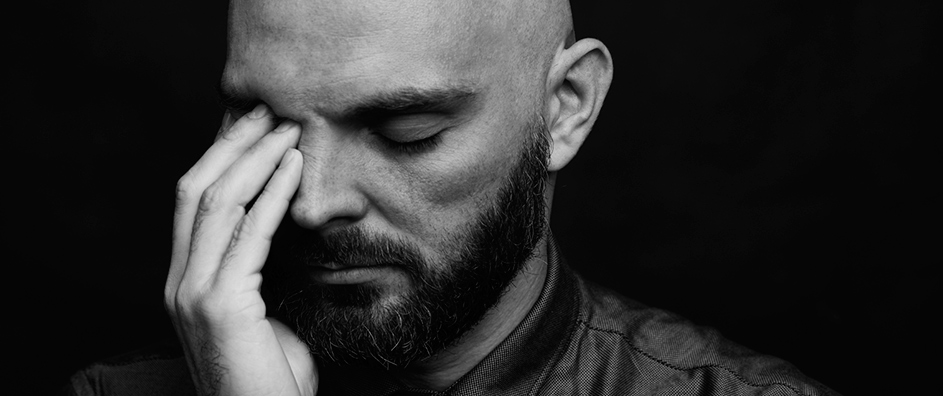In the modern age, the concepts of weariness, trouble, and death frequently occupy our thoughts, often rendering individuals paralyzed by existential dread or despair. However, the Baha’i teachings present a profound shift in perspective that invites us to confront these daunting realities with a sense of courage and hope. This discourse delves into the philosophical underpinnings of Baha’i beliefs, exploring how they afford believers a fresh lens through which to view, understand, and ultimately transcend these ceaseless challenges.
At the core of Baha’i thought is the notion that life is an intricate tapestry woven with both trials and triumphs. This understanding directs attention toward the spiritual dimensions of human existence. The Baha’i Faith posits that weariness arises from an unbalanced focus on the material world, which often engenders dissatisfaction and turmoil. This perspective urges individuals to nurture their spiritual lives, proposing that true contentment and resilience emerge from fostering inner strength and connection to the Divine. Thus, to combat weariness, one must cultivate a relationship with God, which serves as a foundation for resilience against the vicissitudes of life.
Furthermore, the Baha’i teachings illuminate the transient nature of worldly troubles. Every adverse experience is viewed as a potential catalyst for growth. Baha’is are encouraged to embrace challenges, perceiving them as opportunities for spiritual maturation. This sentiment finds voice in the writings of Baha’u’llah, who elucidates that difficulties are ordained for the growth of the soul. By adopting this framework, individuals can navigate the tumultuous waters of existence with a sense of purposeful intentionality, rather than succumbing to despair. The wisdom found within the Baha’i perspective thus encourages believers to reframe their outlook on adversity; rather than viewing it as a malignancy, it can be perceived as a necessary element of human evolution.
In contemplating the very notion of death, Baha’is are endowed with a unique and transformative viewpoint. Unlike conventional perspectives that often shroud death in fear and anxiety, the Baha’i Faith advocates for a celebration of this inevitable transition. Life, as articulated by Baha’u’llah, is a preparatory stage for the soul’s journey beyond this corporeal realm. The Baha’i teachings propose that death is not a terminus but a continuation of existence, a passage into a higher plane where the soul can attain greater proximity to God. This belief is refreshing; it invites individuals to reflect on their actions and intentions during their earthly lives, emphasizing service, compassion, and ethical behavior.
Moreover, the implications of this view are profound. Faced with the realities of death, Baha’is are called not to retreat into nihilism but to expound upon the significance of their everyday choices. In lieu of succumbing to the despair that often accompanies thoughts of mortality, believers are encouraged to invest their energies in acts of kindness and service. In doing so, they inscribe their spiritual legacies, fostering connections that transcend the temporal confines of human existence. Thus, the Baha’i perspective provides a compelling impetus to embrace life fully while remaining cognizant of its impermanence.
Additionally, community plays an instrumental role in the Baha’i approach to weariness, trouble, and death. Central to the Baha’i teachings is the principle of unity, which fosters collective support in times of tribulation. The act of sharing burdens within a nurturing community cultivates emotional resilience, as individuals are buoyed by collective strength during periods of uncertainty. Relationships that are forged in the crucible of shared experiences—notably challenges—fortify the bonds amongst individuals, illustrating an often-overlooked aspect of the human experience: the necessity of communal support.
The Baha’i community posits that mutual assistance extends beyond the self, encapsulating a profound commitment to service. This prospect finds resonance in the works of Abdu’l-Baha, who urges followers to engage actively in the betterment of society. This call to action develops a sense of purpose that combats feelings of helplessness that often accompany tribulations. Service to others not only nurtures the soul but also fosters environments where individuals can collectively confront and transcend the trials they face.
Furthermore, the Baha’i teachings advocate for continual learning and personal development as essential tools for navigating the complexities of life. Education, both secular and spiritual, is paramount, fueling individual capacity to respond thoughtfully to life’s adversities and the reality of mortality. Lifelong education is synonymous with ongoing spiritual awakening. The Baha’i Faith calls for a balanced approach, whereby intellectual pursuits complement, rather than overshadow, spiritual endeavors. This balance equips individuals with the requisite tools to approach life’s inherent uncertainties with an analytical yet faith-infused mindset.
In conclusion, the Baha’i perspective on weariness, trouble, and death invites a radical transformation in how individuals conceptualize their experiences. By nurturing the spiritual dimensions of life, embracing challenges, fostering community, engaging in service, and committing to continual personal development, believers can transcend the shackles of despair. In navigating these profound concepts, the Baha’i teachings proffer not merely solace but also a roadmap that leads to enduring peace and fulfillment. As such, these teachings resonate not only as a source of strength in facing the inevitabilities of life but also as an invitation to a richer, more meaningful existence. The journey towards an enlightened perspective beckons, opening new vistas of understanding that extend far beyond the burdens of weariness, trouble, and death.
